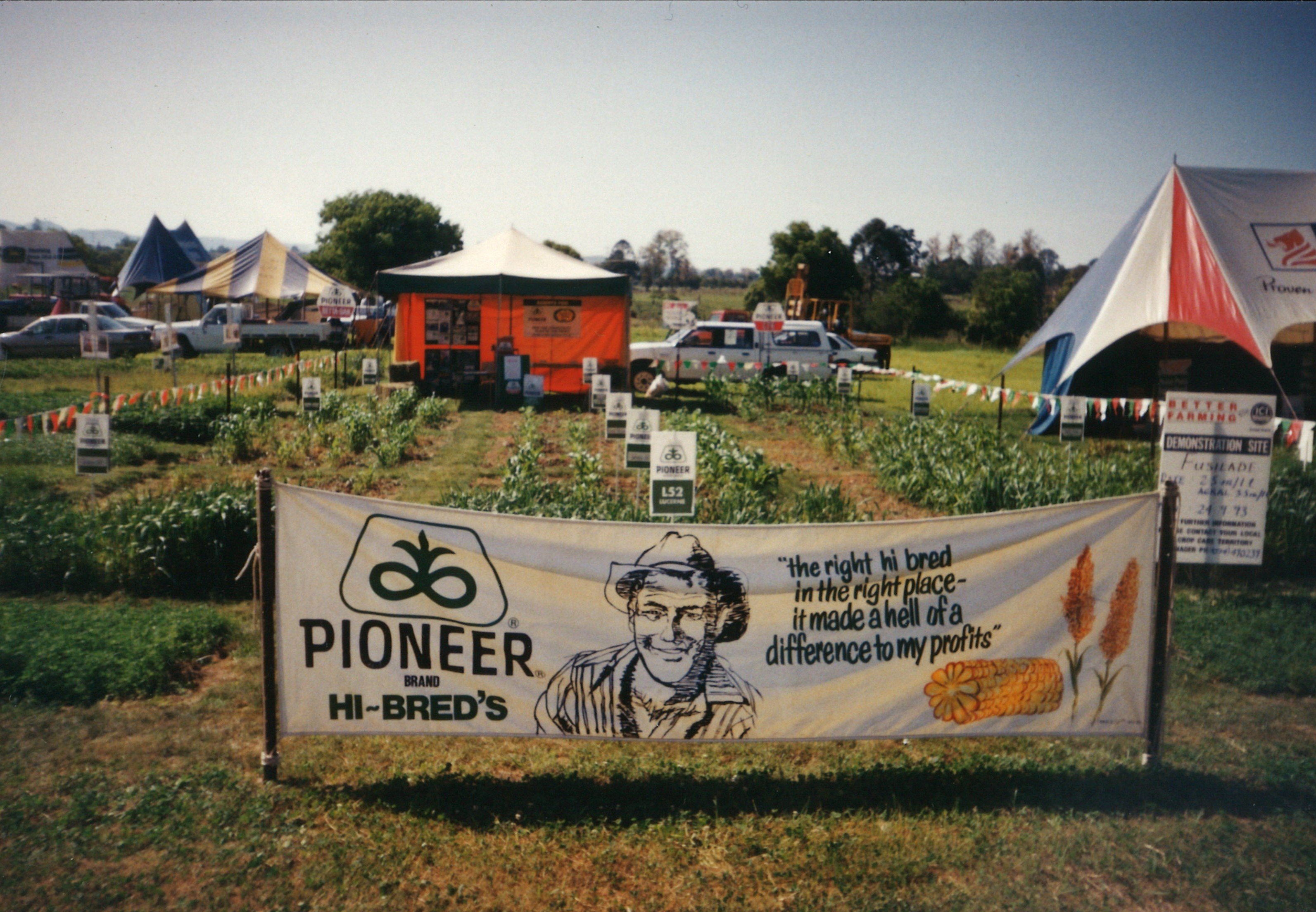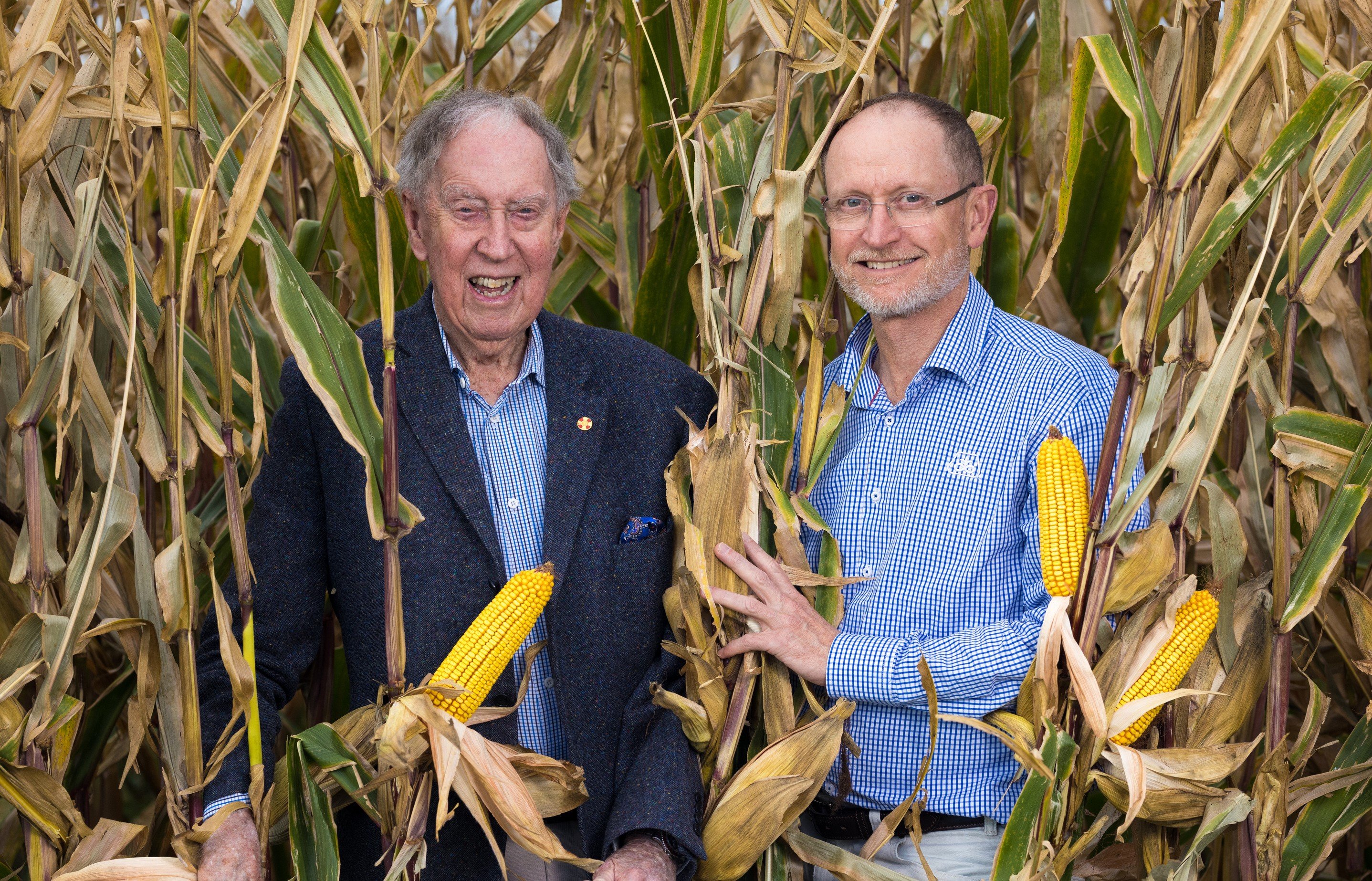Pioneer Seeds celebrates 50 years in Australia
This year we celebrate 50 years since the establishment of the Pioneer Hi-Bred Seed Company in Australia. The company’s humble beginnings were at Kingaroy in Queensland with a handful of staff focused on developing and marketing unique, high performing corn and sorghum hybrids using Pioneer’s elite germplasm.
While the story of Pioneer Seeds in Australia began in 1975, the Pioneer brand’s roots reach back much earlier in the twentieth century to Iowa, USA. Henry Wallace was one of a small number of people in the world who recognised the many benefits that could be gained from growing hybrid maize. He began experimenting with the crop in high school and while at Iowa State College, became fascinated with the relatively new science of hybrid genetics. After graduating in 1910, Henry started breeding hybrid maize and by 1923 had produced a high-yielding hybrid which he called Copper Cross. In 1924, it became the first hybrid to win the gold medal in the Iowa State Corn Yield Contest. In 1926 Henry incorporated the Hi-Bred Corn Company, which later became Pioneer Hi-Bred International. Later in life Henry Wallace was elected Vice President of the U.S.A. under President Franklin D. Roosevelt.
Back in Australia the Company commenced corn and sorghum breeding programmes and in 1981, its name was changed to Pioneer Hi-Bred Australia. A property was purchased at Narromine, New South Wales in 1984, with construction of a seed production facility commencing the following year. The head office and research programme for Pioneer in Australia moved from Kingaroy to Toowoomba, Queensland in 1989.

While hybrid corn, sorghum and forage were the Company’s key focus for the first two decades, Pioneer began developing canola products for the Australian market in the 1990’s with the first open pollinated Pioneer canola variety, 47C02, commercially released in 1999. The next decade saw game-changing advancements come to market with the introduction of herbicide tolerant canola hybrids in Australia.
In 2016, the New Zealand-based Yates family was given the opportunity to take on the production and distribution of Pioneer brand products in Australia. The Yates family were no strangers to the seed industry or the Pioneer brand.

In the late 1700’s, English cotton importer James Yates purchased a small quantity of Egyptian cotton seed and sold it to the colonist farmers in the southern part of the present-day U.S.A. This proved an inspired move as the demand for cotton seeds grew and soon James began expanding the business to develop, produce and distribute the seed of many other plant species.
Almost a century later, James’s great grandson Arthur made the long, arduous sea voyage to New Zealand. Arthur worked as a shepherd and scythed grass seed from roadsides to supplement his income. The seed revenue quickly outstripped his shepherd’s wages, and in 1882 Arthur moved to Auckland, rented a rickety wooden shop and opened a specialist seed business.
Arthur’s younger brother Ernest Yates travelled from England to join him in business in 1886. Ernest was followed in the trade by his son Norman and in 1973 Norman’s son Philip became Chief Executive and Managing Director.
Arthur Yates and Co. Ltd and Yates Reliable Seeds had become a household name, wholesaling seed of every kind from flowers to vegetables, broad acre agricultural seeds and bird seed. In 1975 Philip signed an agreement to produce and distribute Pioneer® brand seed in New Zealand. His son William who joined the business in 1990 is the seventh generation of the family to be involved in the seed trade and is Managing Director for GenTech Seeds (AU) Pty Ltd and Genetic Technologies (NZ) Ltd. These two businesses are singularly dedicated to producing and distributing Pioneer canola, corn and sorghum seed and marketing the Pioneer silage inoculant range, in Australia and New Zealand respectively.

“It is a great privilege to represent Pioneer in the Australasian market. We are committed to investing in industry-leading breeding and product development programmes to deliver higher performing hybrids to growers and the industry.” says Will. “The in-field Pioneer Seeds team resides in all the key cropping regions around the country. Their focus is providing helpful management advice to assist farmers to maximise the return they make from planting Pioneer products”.
“As we celebrate fifty years of Pioneer in Australia this year, I want to warmly thank all the farmers who have planted Pioneer as well as the many resellers, agronomists, contractors, consultants, and past and present members of the Pioneer team who have supported them over all those years”.
